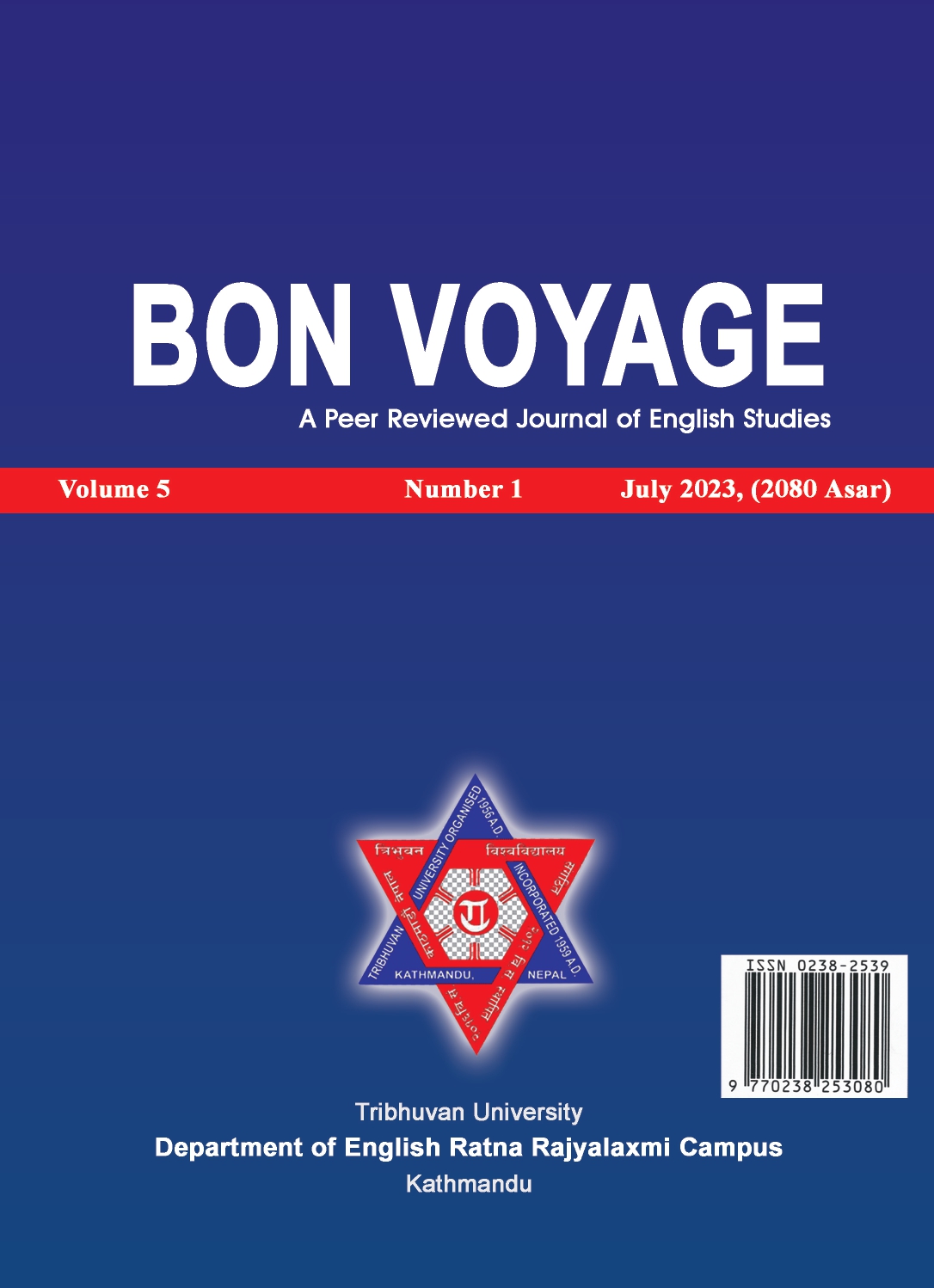Demonization of Children in Laurence Yep’s “The Phantom Heart”
DOI:
https://doi.org/10.3126/bovo.v5i1.64372Keywords:
children, demonization, dominant ideology, poisonous imagesAbstract
This article explores some cultural aspects that lead to the demonization of children in the post Chinese Revolution era (1945-1949) in Laurence Yep’s story “The Phantom Heart”. Based on the insights of Joseph L. Zarnado, Anfeng Sheng, John Clarke and some other critics, it uses children’s perspective to examine the adult behaviors. It examines how dominant adult psychology makes children victim of injustice, poverty and insecurity. The Chinese Revolution, led by The Chinese Communist Party in 1946, ended with the proclamation of the People’s Republic of China in 1949.The change in political system still did not bring a positive change in the attitude towards children. This study ponders on the overall adult attitude of the time towards the children. It tries to excavate cultural and psychological aspects latent in the protagonist characters of the story. Analyzing the mutual relationship of the major characters with the children, it makes an endeavor to portray the impact of dominant adult ideology on children in the socio- political and cultural level. It tries to answer whether the adult ideology to socialize children strengthens their overall development or makes them weaker. It also answers why children are made victim of adult ideology. Its findings suggests that adult ideology has crippled the psychological development of children rather than helping them to develop their fundamental potentials and the children have always been the victim of poisonous images invented against them by the dominant culture to perpetuate dominance. This research offers a new interpretation in studying adult behavior within the context of existing scholarship.




